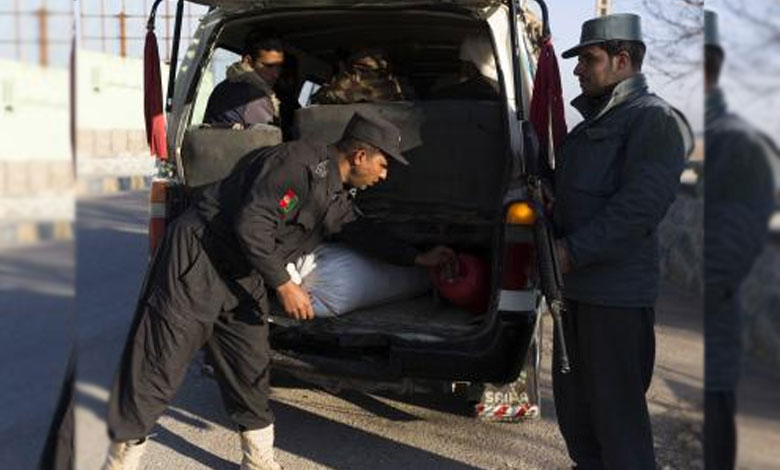Police Foil Drug Smuggling Attempt in Afghanistan
Afghanistan's counter-narcotics police have successfully thwarted an attempt to smuggle nearly 1,000 kg of illicit drugs and drug manufacturing equipment in the western province of Nimroz. Abdul Wasi Raihan, the Provincial Director for Counter-Narcotics Police, confirmed the operation on Saturday but did not provide further details. He also noted that no arrests had been made.

Kabul: Afghanistan’s counter-narcotics police have successfully thwarted an attempt to smuggle nearly 1,000 kg of illicit drugs and drug manufacturing equipment in the western province of Nimroz. Abdul Wasi Raihan, the Provincial Director for Counter-Narcotics Police, confirmed the operation on Saturday but did not provide further details. He also noted that no arrests had been made.
Table of Contents
Drug Smuggling Intercepted in Nimroz Province
In a similar operation, police apprehended a drug smuggler in Nimroz province’s Kang district on Wednesday. Authorities discovered 66 kg of opium poppy in his possession. Mawlawi Ahmad Sayed, the district police chief, reported the arrest.
Afghanistan’s Efforts to Combat Drug Production and Addiction
Afghanistan has been grappling with the rampant production and trafficking of illicit drugs, particularly heroin, for decades. The Afghan caretaker government has implemented a ban on poppy cultivation, drug processing, and trafficking as part of its broader effort to eliminate the nation’s drug problem.
Also Read: Myanmar to Release Over 6,000 Prisoners to Mark Independence Day
Despite these efforts, Afghanistan remains home to over three million drug addicts, a legacy of years of conflict and instability. However, the government is committed to eradicating drug production and addiction in the country.
Rehabilitation Efforts for Drug Addicts
To tackle the drug addiction crisis, the Afghan caretaker government has launched rehabilitation programs. Currently, 550 drug addicts are undergoing vocational training at the Aghosh camp, located in Pul-e-Charkhi, on the eastern outskirts of Kabul. This center provides recovering addicts with the opportunity to learn new skills and become self-sufficient.
Faridullah, a recovered addict from the Aghosh camp, shared his experience, stating, “I have been living in the Aghosh camp for five months. I am in good health and working on the shoe-making project.” He added that he plans to open his own shoe-making business in the future to support himself and his family.
Message for Other Addicts
Faridullah emphasized the destructive nature of drug addiction, stating, “Using drugs destroys your life and property. They ruin your honour and credibility, both at home and in society.” He encouraged others who are struggling with addiction to seek help from rehabilitation centers, where they can learn valuable skills and gain the tools necessary to rebuild their lives.
Another former addict, Sayed Yasar Sadat, 22, shared his story of recovery. Sadat, who had been a university student before his addiction, is now studying electro-mechanics at the Aghosh camp and hopes to become an electrician. Upon completing his training, he plans to open a repair shop for electronic devices.
Vocational Training and Recovery
The Aghosh camp offers various training programs, each lasting four months. Over the past 18 months, 1,600 individuals have graduated from these courses. The camp’s director, Ezatullah Rahmat, stated, “After three months of treatment, recovering addicts are transferred to this camp, where 550 recovered individuals are currently receiving training to become skilled workers.”
Afghanistan’s commitment to fighting drug trafficking and addiction continues as the government strives to create a drug-free nation.
